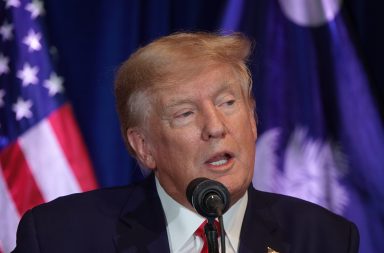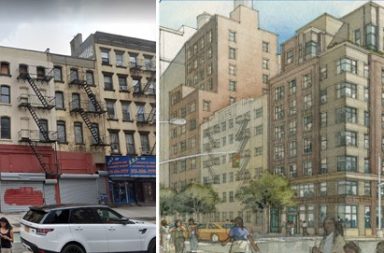
Pharma giant Pfizer has clinched a momentous deal to move its Manhattan headquarters to The Spiral — a dramatic, 1,031 foot tall skyscraper which Tishman Speyer is building in the Hudson Yards district, the companies announced Tuesday morning.
The 800,000-square-foot lease was signed this week, eight months after The Post first reported on the plan last August. It was not a done deal until now even though Pfizer expressed its commitment to Rob Speyer’s development company last summer.
The Post has learned, meanwhile, that in an equally momentous deal that can boost the office district along Second Ave., Pfizer will sell its buildings at 219 and 235 E. 42nd St. to press-shy, Brooklyn-based investor David Werner for about $360 million. Werner, who’s a part-owner of 150 E. 42nd St. and 5 Times Square, is expected to tear the old Pfizer digs down for a new tower — but lease them back to Pfizer until the company moves to The Spiral around 2022.
Werner will likely bring in a development partner at the old Pfizer site, where much larger new buildings can now go up thanks to recent East Midtown rezoning. “He has five years to figure it out,” one source told The Post. Werner was meeting with investors this week and did not return a request for comment.
Pfizer’s 20-year lease at the 65-story Spiral is for the 7th through 21st floors totaling 15 floors plus part of the mezzanine and lobby where it will have a dedicated 34th Street entrance. Construction overseen by Turner is to start in July on the tower, which will fill the block bounded by West 34th and 35th streets and by Tenth Avenue and the new Hudson Park and Boulevard. A Cushman & Wakefield team led by Josh Kuriloff, Matthias Li and Andrew Braver represented Pfizer in the lease negotiations.
Pfizer held off signing a term sheet with Tishman Speyer until the rezoning was approved last August, sources said — so that it could sell the old buildings for a higher price.
Pfizer was repped in the investment-sale talks by Cushman’s Adam Spies, Douglas Harmon, Anthony Pasqual and Josh King, along with Bob Knakal.
In New York City since 1849, Pfizer’s move is the latest dramatic advance for the Far West Side, the once-nowhere district between West 30th and West 34th streets that’s now home, or soon will be, to major companies including Coach Inc., L’Oreal, Time Warner, BlackRock, the National Hockey League, Skadden Arps, and several other large law firms.
The Spiral will have 2.85 million rentable square feet. Designed by Danish starchitect Bjarke Ingels, the $3.7 billion tower takes its name from stepped, landscaped terraces on four sides that curl upward around the facade like necklaces.
Located at 509 W. 34th St., just west of Tenth Avenue, it will have the address of 66 Hudson Blvd. It will be the second office tower to rise in the Hudson Yards District not put up by Related Companies or Brookfield Property Partners, which are developing a forest of tall towers on 26- and 7-acre projects, respectively, next to and above the West Side rail yards.
With anchor tenant in hand, Tishman Speyer will pay for the project with $1.9 billion in equity from both itself and over a dozen other institutional, pension fund and individual investors. A $1.8 billion construction loan has also been obtained from Blackstone Mortgage Trust.
Tishman Speyer CEO Rob Speyer called The Spiral “the world’s most connected and collaborative office environment” with “iconic design, amazing views and abundant access to outdoor amenity spaces.”
“Every floor has a terrace,” Speyer observed. “Every floor will feature a double-height atrium leading to one of the terraces, which cascade up the building in a spiral.”
Even with the Pfizer lease, the tower will still have nearly two million square feet to be rented. But Speyer seemed unfazed over competition for tenants from all the new buildings coming on line — including at Related’s 50 Hudson Yards across the street, where about the same amount of space remains available as in The Spiral.
“No, I think all the buildings on the far West Side help each other,” Speyer said. “We compete in a literal sense. But in a bigger sense, we’re creating a new neighborhood together.”









